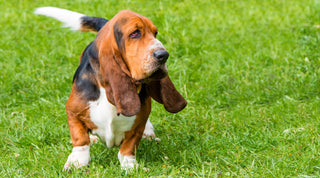Understanding Allergies in Basset Hounds
Basset Hounds, with their endearing droopy eyes and long ears, are susceptible to various allergies that can cause discomfort and health issues. Allergies are an over-reaction of the dog's immune system to foreign substances, which could be anything from pollen to certain foods. Recognizing the signs of allergies in your Basset Hound is the first step to providing relief. Symptoms can include chronic ear infections, itchy skin, sneezing, and watery eyes—commonly leading to that telltale sniffle.
Common Allergens Affecting Basset Hounds
The list of potential allergens for Basset Hounds is extensive, with the most common being environmental allergens such as pollens, molds, and dust mites. Due to their short stature, Basset Hounds are often closer to the ground, exposing them to more allergens. Furthermore, their long ears can trap dirt and moisture, leading to yeast and bacterial infections. Food allergies are also prevalent, with some Basset Hounds reacting to ingredients like beef, chicken, corn, wheat, or soy.
Environmental Allergies
In cases of environmental allergies, your Basset Hound might benefit from more frequent baths with hypoallergenic shampoos to remove allergens from the skin and coat. Keeping your home clean, using air purifiers, and avoiding smoke or fragrances can help reduce their exposure to inhaled allergens.
Food Allergies
For food allergies, an elimination diet can help identify the offending ingredients. This involves feeding your dog a limited-ingredient diet until symptoms improve, then reintroducing ingredients one at a time to pinpoint what causes the allergic reaction. Once identified, you'll need to avoid feeding your Basset Hound any foods containing the allergen.
Treatment and Management Strategies
When it comes to treating and managing allergies in Basset Hounds, there are several strategies that veterinarians might recommend. Antihistamines can provide relief for some symptoms, though their effectiveness can vary between individuals. Corticosteroids can help reduce inflammation but come with potential side effects, especially with long-term use. More novel approaches, such as immunotherapy, can desensitize the immune system to allergens, although this is a more extensive and long-term treatment option.
Topical Treatments
Topical treatments such as medicated wipes or creams can also be used to provide localized relief, especially for itchy skin or irritated ear canals. Cleaning your dog's ears regularly is essential for Basset Hounds, helping to prevent infections that could exacerbate allergy symptoms.
Omega-3 Fatty Acids
Including Omega-3 fatty acids in your Basset Hound's diet can help improve skin health, reducing sensitivity and inflammation. These supplements, often found in fish oil, can act as a natural anti-inflammatory, providing relief from itchy skin and other allergy symptoms.
An easy way to ensure your Basset Hound gets these nutrients is by adding a scoop of Neo Bites Allergy Aid Meal Topper over your pup's existing meals. It's made from wholesome superfoods like kale, turmeric, kelp, flaxseed, and insect blend, and carefully formulated by a veterinarian—so you can rest assured they'll be getting the right amount of what they need.
Preventative Measures and Regular Vet Visits
Preventative care is paramount in keeping your Basset Hound's allergy symptoms at bay. Regular vet visits can help catch early signs of allergies and prevent them from escalating into more severe issues. Your vet can offer more personalized advice and treatment options, ensuring your furry friend's comfort and health.
Creating an Allergy-Friendly Environment
Aside from treatments, making changes around your home can create an allergy-friendly environment for your Basset Hound. Opt for hypoallergenic bedding, and consider a weekly laundry routine to eliminate accumulated allergens. Vacuuming and cleaning floors can reduce the presence of dust mites and other irritants that may affect your pet.
Monitoring Your Dog's Condition
Finally, keep a close eye on your dog's symptoms and behaviors. Tracking when and where your Basset Hound seems most affected can help pinpoint specific allergens and times of the year when they are most sensitive. With careful observation and a proactive approach, you can help ensure that your Basset Hound lives a sniffle-free life, with their tail wagging happily and their snout free from the discomfort of allergies.






